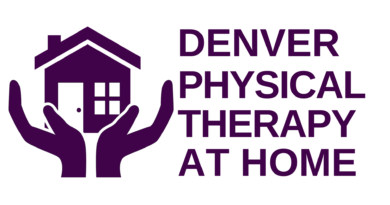Accountancy Software Options: Smart Tools for Modern Business Needs
Managing your finances shouldn’t feel like you’re trying to figure out a maze full of numbers. Whether you’re a small business owner, a freelancer, or running a growing enterprise, the right accountancy software can transform how you handle your accounts. From simplifying tax calculations to streamlining invoicing, these tools for accountants and other finance professionals are designed to save you time and reduce stress. But with so many options on the market, how do you choose the one that’s right for you?
Not all accountancy software is created equal. Some cater to specific industries, while others focus on scalability or automation. The key is finding a solution that aligns with your needs and budget without overcomplicating things. In this guide, you’ll discover a range of accountancy software options, helping you make an informed decision to keep your finances in check and your business running smoothly.
A Closer Look at Accountancy Software Options
Choosing from various accountancy software options means understanding their key features, cost structures, and compatibility with your financial needs. You will find that these platforms vary significantly in terms of capabilities, making it essential to evaluate them carefully before committing.
Cloud-Based Software for Flexibility
Cloud-based solutions might suit you if mobility and real-time access to data are important. These platforms, such as Xero or QuickBooks Online, enable you to manage accounts from anywhere, anytime. With a secure login, you access financial insights, invoicing tools, and payment tracking all in one place. In case sensitive financial information concerns you, multi-factor authentication or encryption features enhance security.
Comprehensive Features for Larger Businesses
Software designed for larger enterprises often includes payroll integration, advanced reporting, and multicurrency support. Products like Sage 50 or SAP Business One provide scalability, so when your business grows, the tools grow with it. These accountancy software options include tools to manage employee expenses, audit trails, and cash flow forecasting. This is ideal when your operations span multiple departments or geographic locations.
Budget-Friendly Solutions for Startups
Startups or sole traders often prioritise affordability. Options like Wave Financial or FreeAgent offer reasonable subscription fees or even free plans for basic accounting tasks. These options streamline invoicing and expense management without burdening your budget. You will appreciate simplified tools, particularly if you’re figuring accounting for the first time.
Tailored Tools for Industry-Specific Needs
Certain professions require niche features to address industry-specific regulations or workflows. Construction companies often look towards software like RedTeam for project cost tracking, while creatives might prefer tools like Harvest for time-based billing. Matching tools to your industry ensures accounting processes align seamlessly with daily operations.
Ease of Use for Non-Accountants
Small business owners without financial expertise might prioritise user-friendly dashboards and automation. Platforms such as Zoho Books or KashFlow provide intuitive interfaces, automating tasks like VAT submissions or categorising transactions. User-centric designs reduce the potential for errors and save you valuable time.
By matching software categories to your needs, you refine your options and improve your financial management experience. What features align most closely with your priorities?
Some Primary Features To Consider
Selecting accountancy software demands careful attention to its features. Each aspect impacts how the tool fits your workflow and scales with your business needs.
Ease Of Use
Clear dashboards let you figure out tasks effortlessly. When you explore software, you will find that options like QuickBooks Online or Wave prioritise simplicity in design. Setup wizards, accessible menus, and automation simplify processes like tracking invoices or reconciling accounts. For newcomers, intuitive interfaces reduce the learning curve, while video guides and FAQs enhance accessibility. You might prioritise software that allows seamless management without extensive training, especially as ease in daily operations saves effort long term.
Scalability
Growth planning often depends on flexible tools. Choosing software capable of expanding functionalities ensures it adapts when your business thrives. You will benefit from platforms like Xero, which support users by enabling custom features or handling larger transaction volumes over time. When teams expand, collaboration tools enhance task delegation and reporting. Software with multi-tier licence plans anticipates organisational changes to help track complexities, whether offices multiply or financial flows diversify.
Integration Capabilities
Balancing systems leads to efficiency. Advanced accountancy tools prioritise integration across CRM platforms, payroll modules, and inventory systems. For instance, Sage 50 and FreshBooks improve workflows by integrating with Stripe, PayPal, or Shopify. You will uncover the power in consolidating operations under fewer interfaces, making data syncing reliable. Tools communicating in real time reduce errors that siloed systems risk. Adopting software compatible with existing tools preserves productivity.
Reporting And Analytics
Insightful reports guide better decisions. Tools offering detailed financial analytics let you review data from profit margins to tax liabilities. Products like Zoho Books transform raw figures into visual graphs and trend forecasts. When you work with comprehensive reporting features, you analyse metrics specific to cash flow or expenses effortlessly. Dynamic filters tailor reports for stakeholders, so presenting accurate fiscal snapshots requires less time.
Pros And Cons Of Using Accountancy Software
Accountancy software transforms financial management, but every solution carries inherent strengths and limitations. Understanding these factors ensures you select the right system tailored to your needs.
Advantages
Automation simplifies tasks like invoicing, payroll, and tax submissions. It reduces repetitive manual entry, minimising errors and saving time. Real-time access means you can monitor cash flow and generate reports from any location. Integration with tools like payment gateways or CRM platforms streamlines operations further. Scalable solutions adapt to your growing business, accommodating larger transaction volumes. Cloud-based platforms frequently update, offering security and cutting-edge features without the need for manual upgrades.
Disadvantages
Some software involves steep learning curves, especially for advanced features or customisation. Larger systems might lack specialised modules critical for niche industries. Costs, including subscriptions or training, can strain smaller budgets. Customisation or feature constraints in basic plans may require paying for additional upgrades. Connectivity risks arise when cloud platforms experience outages, potentially delaying access. Moreover, data migration from older systems often leads to compatibility issues, requiring extra technical intervention.
Thoughts on Choosing The Right Accountancy Software
Selecting accountancy software influences how you manage financial tasks and streamline operations. You will find that the right platform aligns seamlessly with the specific needs of your business, offering tools to match your operational scale and industry requirements. It’s about understanding the features that genuinely add value, rather than simply opting for what’s most popular.
You might begin by asking yourself a few critical questions. Does your software need to support multi-currency transactions? In the case that your business operates internationally, this becomes a focal point. Does scalability matter for your long-term goals? Growing businesses benefit from systems capable of handling increasing data loads and advanced functionalities. Platforms like Xero adapt over time, offering extensions for custom needs as your operations expand.
Integration capabilities can often simplify workflows, connecting your accountancy software to CRM platforms, payroll solutions, or inventory management tools. Many users consider QuickBooks Online or Sage for their ability to seamlessly link with external systems. This reduces manual data transfers and ensures your processes stay connected. You might notice considerable time saved when systems talk to each other efficiently.
Ease of use presents another clear advantage for certain software. You probably want your team—whether accountants or non-specialists—to feel confident figuring the platform you choose. User-friendly interfaces, such as those found in Wave, can shorten setup times and minimise errors. Consider scheduling a trial period to assess the learning curve associated with different options.
You can’t deny that cost plays a role. Budget-conscious users often explore FreeAgent or Wave, which cater to sole traders and small teams with free or affordable pricing tiers. In contrast, larger enterprises investing in solutions like SAP Business One gain advanced reporting and data insights, albeit at a higher price. Match your budget with the complexity of your needs to narrow selections effectively.
Another element worth reflection lies in security features. Cloud-based systems like QuickBooks Online and Xero bolster data protection by including encryption and backup protocols. If data sensitivity is key in your operations, these features gain prominence.
Choosing accountancy software revolves around addressing your current demands while anticipating potential growth. Answering these questions and evaluating features based on your priorities ensures the decision supports your business seamlessly.
In Closing
Selecting the right accountancy software is a pivotal step in streamlining your financial processes and supporting your business’s growth. By carefully evaluating your specific needs, budget, and long-term goals, you can identify a solution that enhances efficiency and reduces manual effort.
Consider the features that matter most to your operations, whether it’s automation, scalability, or seamless integration with other tools. A well-chosen platform not only simplifies day-to-day tasks but also empowers you to make informed financial decisions with confidence. Investing time in finding the right software now can save you significant resources in the future, ensuring your business remains agile and well-prepared for whatever challenges lie ahead.




